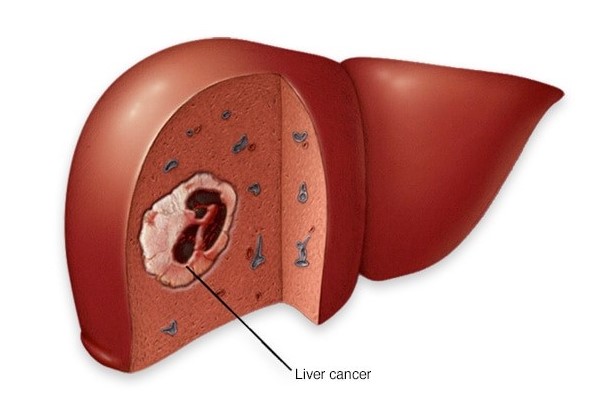Hepatocellular carcinoma
Hepatocellular carcinoma (HCC) is the most common type of primary liver cancer. Hepatocellular carcinoma occurs most often in people with chronic liver diseases, such as cirrhosis caused by hepatitis B or hepatitis C infection.

lenvatinib-lenvanix
Diagnosis
Tests and procedures used to diagnose hepatocellular carcinoma include:
- Blood tests to measure liver function
- Imaging tests, such as CT and MRI with contrast, and advanced imaging procedures, such as magnetic resonance elastography
- Liver biopsy, in some cases, to remove a sample of liver tissue for laboratory testing
Treatment
Which treatment is best for the patient depends on the size and location of hepatocellular carcinoma, how well the liver is functioning, and overall health.
Hepatocellular carcinoma treatments include:
- Surgery. Surgery to remove the cancer and a margin of healthy tissue that surrounds it may be an option for people with early-stage liver cancers who have normal liver function.
- Liver transplant surgery. Surgery to remove the entire liver and replace it with a liver from a donor may be an option in otherwise healthy people whose liver cancer hasn’t spread beyond the liver.
- Destroying cancer cells with heat or cold. Ablation procedures to kill the cancer cells in the liver using extreme heat or cold may be recommended for people who can’t undergo surgery. These procedures include radiofrequency ablation, cryoablation, and ablation using alcohol or microwaves.
- Delivering chemotherapy or radiation directly to cancer cells. Using a catheter that’s passed through your blood vessels and into liver, doctors can deliver chemotherapy drugs (chemoembolization) or tiny glass spheres containing radiation (radioembolization) directly to the cancer cells.
- Targeted drug therapy. Targeted drugs, such as Lenvatinib, may help slow the progression of the disease in people with advanced liver cancer.
- Radiation therapy. Radiation therapy using energy from X-rays or protons may be recommended if surgery isn’t an option. A specialized type of radiation therapy, called stereotactic body radiotherapy (SBRT), involves focusing many beams of radiation simultaneously at one point in body.
